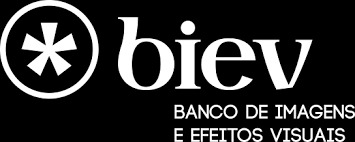COLLABORATIVE ANTHROPOLOGY AND DIGITAL REPOSITORIES OF URBAN RESEARCH:
THE EXPERIENCE OF THE IMAGE AND VISUAL EFFECTS BANK (UFRGS)
Abstract
ABSTRACT:
The article addresses the themes of Open Science and Memory and Cultural Heritage Policies in Brazilian cities as part of the processes of accessibility to the country’s urban communities through the public communication of research data on their cultural and historical heritage that have been developed within the Bank of Images and Visual Effects, a research project of the Postgraduate Program in Social Anthropology at the Federal University of Rio Grande do Sul. It aims to deepen the dilemmas faced by the scientific community in relation to the construction of digital repositories of ethnographic research of Urban Anthropology as well as its dissemination, which should not be directed only to the country’s national network of museums and documentation centers, but also to a broader public, via digital and electronic
networks. The aim is to expand ethnographic research in hypermedia and contribute to studies on the heritage of audiovisual anthropological production, considering it a bearer of a specific cultural value. This complex, important and fundamental process has already been carried out within the scope of the BIEV production and creation workshops, under the supervision of the coordinators of the research group and with the participation of fellows and the support of associated researchers trained in web design. The collections under the custody of laboratories and research centers in visual anthropology, such as the case of BIEV, concentrate cultural productions that result from the collaborative relationships between researchers and their research partners and, therefore, must be returned to them.
KEYWORDS: Digital repositories. Restitution. Ethnography. Image. City
Downloads

Downloads
Published
Issue
Section
License
- Autores mantém os direitos autorais e concedem à revista o direito de primeira publicação, com o trabalho simultaneamente licenciado sob a Licença Creative Commons Attribution que permite o compartilhamento do trabalho com reconhecimento da autoria e publicação inicial nesta revista.
- Autores têm autorização para assumir contratos adicionais separadamente, para distribuição não-exclusiva da versão do trabalho publicada nesta revista (ex.: publicar em repositório institucional ou como capítulo de livro), com reconhecimento de autoria e publicação inicial nesta revista.
- Autores têm permissão e são estimulados a publicar e distribuir seu trabalho online (ex.: em repositórios institucionais ou na sua página pessoal) a qualquer ponto antes ou durante o processo editorial, já que isso pode gerar alterações produtivas, bem como aumentar o impacto e a citação do trabalho publicado (Veja O Efeito do Acesso Livre).


